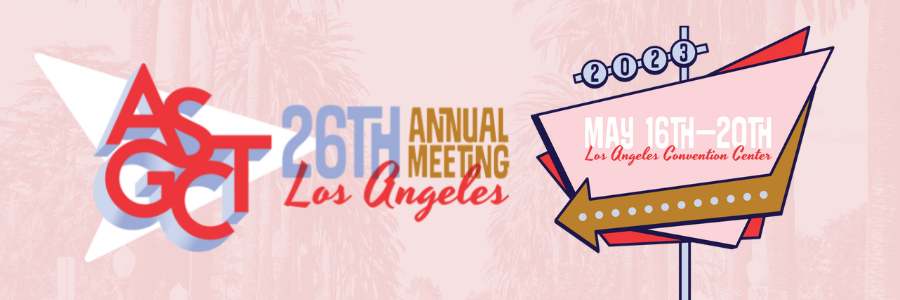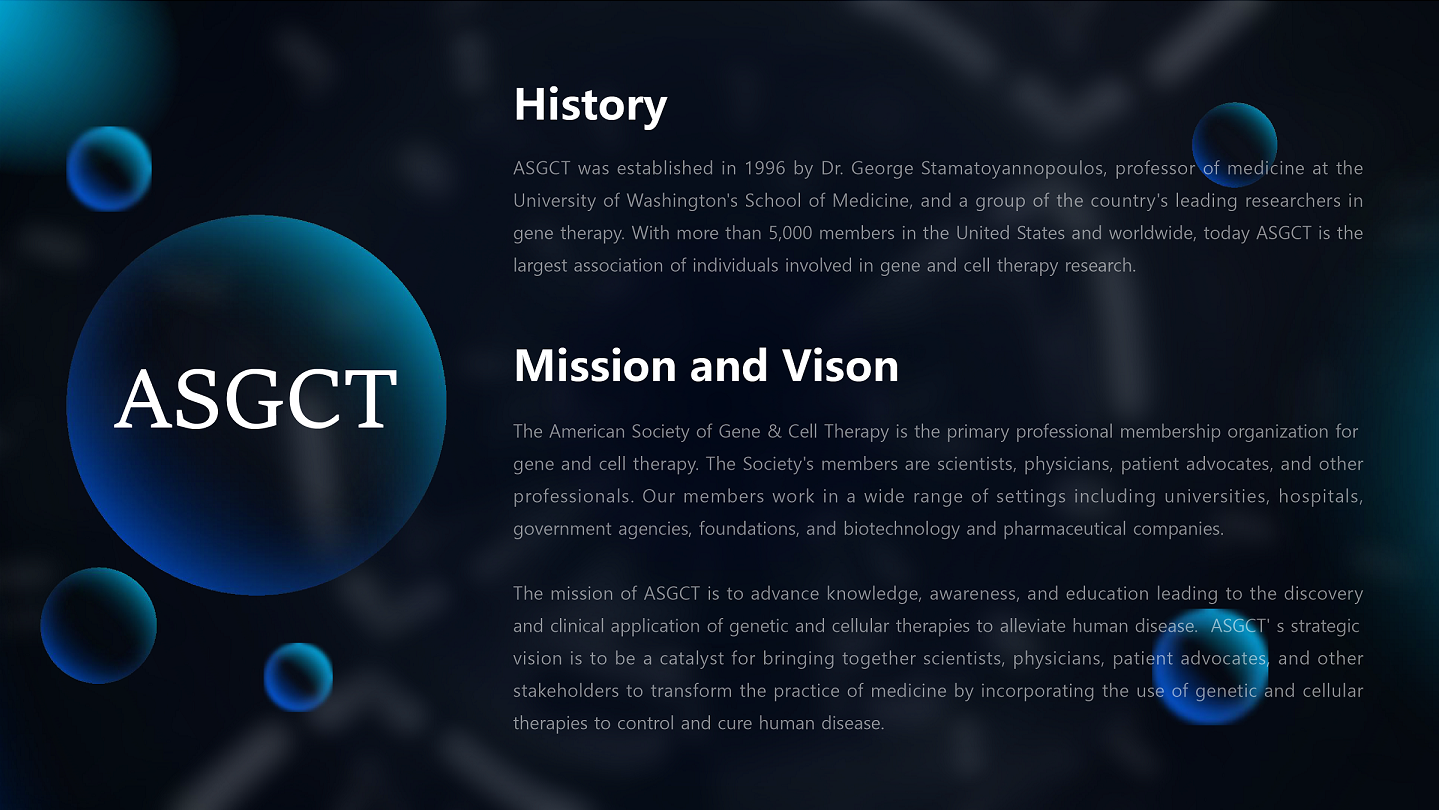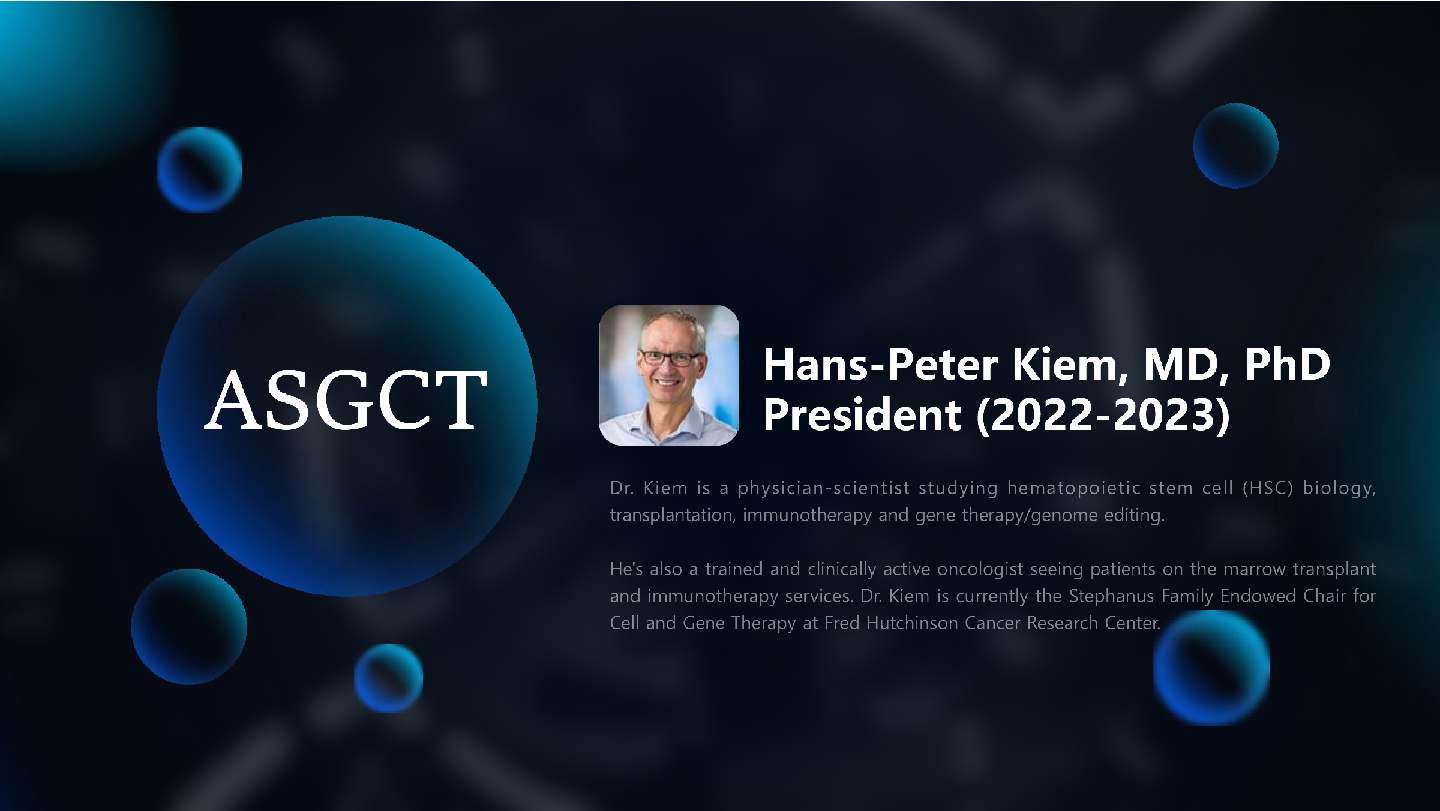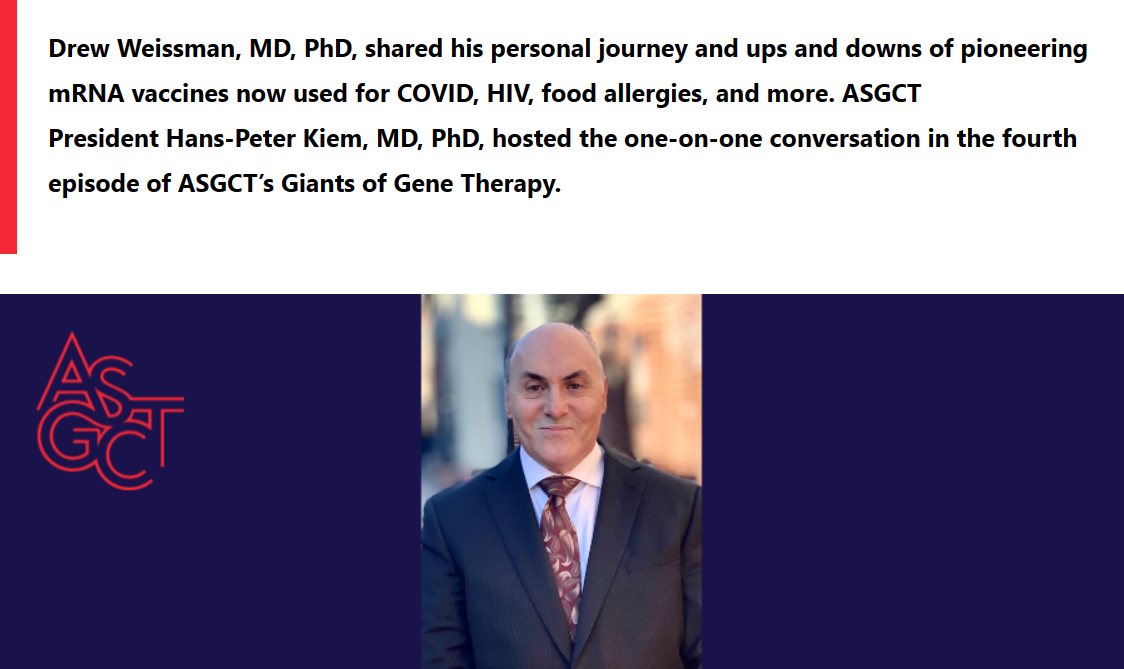
2023-03-10 00:00:00來源:百奧利盟官方發布瀏覽量:191
2023年第26屆美國基因與細胞治療學會年會(ASGCT)將于2023年5月16日至20日在洛杉磯召開,美國基因和細胞治療學會(ASGCT)年會是基因和細胞治療專業人士的首要活動,百奧利盟創始人倪毅作為ASGCT Member受邀參加本次為期5天的年會。

美國基因與細胞治療學會(ASGCT)是由Dr. George Stamatoyannopoulos于1996年創立,總部位于密爾沃基,是全球最大的專業從事基因和細胞治療研究的非贏利性醫學組織,也是世界基因與細胞治療領域最具權威性與公信力的機構。
ASGCT(American Society of Gene + Cell Therapy)提供一個國際化平臺,供從業者們介紹和批判性討論前沿基因和細胞療法,會議的內容涵蓋基因療法從實驗研發到臨床試驗以及各高校、研究所和藥企的最新成果,包括眾多研究人員將介紹基因與細胞治療領域的前沿技術和方向。
ASGCT已召開25屆,每年吸引數以千計的全球各地的學者、FDA 官員、工業界代表、投資人參加。在全球擁有超過5000名成員,ASGCT設有癌癥治療、心血管和遺傳委員會等若干個科學委員會。
百奧利盟創始人 / 中國疫苗行業協會標準化委員會委員

碩士畢業于北京航空航天大學,專業為軟件工程。美國伊利諾伊理工大學深造,專業為人工智能。致力于為全球精準醫療和創新生物藥行業提供數字化解決方案。
2012年創建北京百奧利盟,聚焦基因與生物技術數字化,助力生命科學企業數字化轉型。主持研發的數字化系統在中國和美國獲得軟件著作權和專利等知識產權。
2016年在美國創建Bio LIMS Inc, 主持系統國際化工作。在美國、中東等地取得多個國際化最佳實踐案例。
中國疫苗行業協會理事單位/標準化委員會委員。目前研究方向是人工智能、GxP數字化、IIoT(工業物聯網)、云計算在生命科學行業的應用。

History
ASGCT was established in 1996 by Dr. George Stamatoyannopoulos, professor of medicine at the University of Washington's School of Medicine, and a group of the country's leading researchers in gene therapy. With more than 5,000 members in the United States and worldwide, today ASGCT is the largest association of individuals involved in gene and cell therapy research.
Mission & Vision
The American Society of Gene & Cell Therapy is the primary professional membership organization for gene and cell therapy. The Society's members are scientists, physicians, patient advocates, and other professionals. Our members work in a wide range of settings including universities, hospitals, government agencies, foundations, and biotechnology and pharmaceutical companies.
The mission of ASGCT is to advance knowledge, awareness, and education leading to the discovery and clinical application of genetic and cellular therapies to alleviate human disease. ASGCT' s strategic vision is to be a catalyst for bringing together scientists, physicians, patient advocates, and other stakeholders to transform the practice of medicine by incorporating the use of genetic and cellular therapies to control and cure human disease.

Dr. Kiem is a physician-scientist studying hematopoietic stem cell (HSC) biology, transplantation, immunotherapy and gene therapy/genome editing. He's also a trained and clinically active oncologist seeing patients on the marrow transplant and immunotherapy services. Dr. Kiem is currently the Stephanus Family Endowed Chair for Cell and Gene Therapy at Fred Hutchinson Cancer Research Center.
May 16-20, 2023
Speakers & Schedules

Drew Weissman, MD, PhD , is the Roberts Family Professor in Vaccine Research, Director of Vaccine Research in the Infectious Diseases Division, and Director of the Institute for RNA Innovation at the University of Pennsylvania. He co-created the nucleoside-modified mRNA technology and other mRNA vaccine-related improvements, patented in 2005.
Tuesday, May 16 | 8 a.m. - 12 p.m.
This workshop will present attendees with information they can use to make timely, informed decisions throughout the development cycle to help them avoid or overcome common CMC challenges.
*** Interactive Portion: Following level-setting presentations, attendees will split into breakout groups to consider one or more hypothetical scenarios and suggest possible courses of action based on what they learned from the presenters. Finally, discussion leaders will reconvene to share ideas from each group and help illuminate key themes.
Tuesday, May 16 | 1:30 -3:15 p.m.
This session will provide a CMC comparability playbook that can be utilized by CGT developers to support the incorporation of manufacturing changes throughout the stages of drug product development. Speakers will focus on:
Overview of comparability for CGT products: Considerations for developers
FDA’s assessment of comparability data in CGT
Case study on comparability issues for cell therapies: Atara's experience
Case study on comparability issues for AAV products: Solid Biosciences’ experience
Tuesday, May 16 | 1:30 – 3:15 p.m.
This symposium will first provide an overview of the core ethical questions at play, then engage a series of stakeholders to provide their views on the U.S. healthcare system at large, unique development and pricing considerations for CGTs, and the question of privilege in patient access. Speakers will focus on:
Setting the stage: Outlining the ethical dilemmas involved in pricing and access
ICER’s valuation framework: Assessing cell and gene therapies
Pricing valuation of CGTs from the developer perspective
The promise and challenges of accessing innovative high-cost therapies: Angelman syndrome
Assessing the American health care system: How did we get here?
Wednesday, May 17 | 8:00 – 9:45 a.m.
This session will first address what accelerated approval is, including its scientific underpinnings and how it has been used in the CGT space. The session will then turn to forward-looking and in-depth panel discussion on the future of accelerated approval. Speakers will focus on:
Level-setting accelerated approval for CGTs: What sponsors should know
Bluebird’s experience with accelerated approval and efficacy data - discussion on the Skysona (eli-cel) experience
The scientific underpinnings of accelerated approval: Validity of biomarkers and clinical data to demonstrate relevance
Novel endpoints and biomarkers in supporting CGT development
CBER’s views on the past, present, and future of accelerated approval for CGT products
Thursday, May 18 | 8:00 – 9:45 a.m.
This symposium will bring together senior leaders from global health authorities (FDA and PDMA) to discuss important aspects of their regulatory frameworks for cell and gene therapy products. Speakers will focus on:
Upcoming guidance documents, new policies, and convergence efforts between regulatory bodies
Discussion of the current outlook for cell and gene therapy development in 2023 and beyond
Friday, May 19 | 8:00 – 9:45 a.m.
This session will be tailored to help the meeting's audience understand current access issues within the Medicaid system and explore solutions to better accommodate the exponential pipeline of gene and cell therapies. Speakers will focus on:
Current challenges in patient access and the implications for scientists
The role of Medicaid in ensuring timely, equitable access to care
Payer perspective on outcomes-based arrangements: State Medicaid programs
Payer perspective on outcomes-based arrangements: Managed care organizations
Payer perspective on outcomes based arrangements: Reinsurance for states and MCOs
來源: ASGCT |?http://www.asgct.org